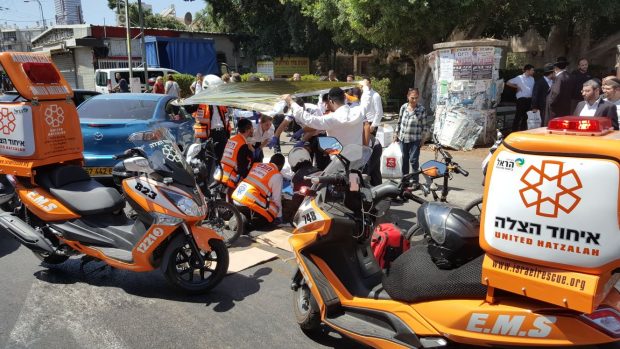Creating a National Motorcycle Flashmob of Lifesaving
Following a visit to our headquarters by Ken Engelman, I reached out to BTR. Ken, who is an American, was on a tour around Israel to see how the country uses and works with motorcycles to respond to medical emergencies. He was very impressed with our operation and suggested that I reach out to Born To Ride. After looking at your website and online media, I thought that this would be a terrific place to tell the story of how motorcycles are used to save lives here in Israel.
United Hatzalah’s motorcycle responders are Israel’s most active volunteers. We come from all backgrounds and religions to provide the very first response to medical emergencies across the country. While some of our men and women only began riding later on in life, their mission to save lives, combined with the need for speed in shaving off response times and the simple enjoyment of riding a motorcycle combines to make all of us riders simply born to ride.
I am thankful that you are helping us spread the word. Hopefully, we’ll be able to bring our model of lifesaving to other locations as well and help more people.
Raphael Poch
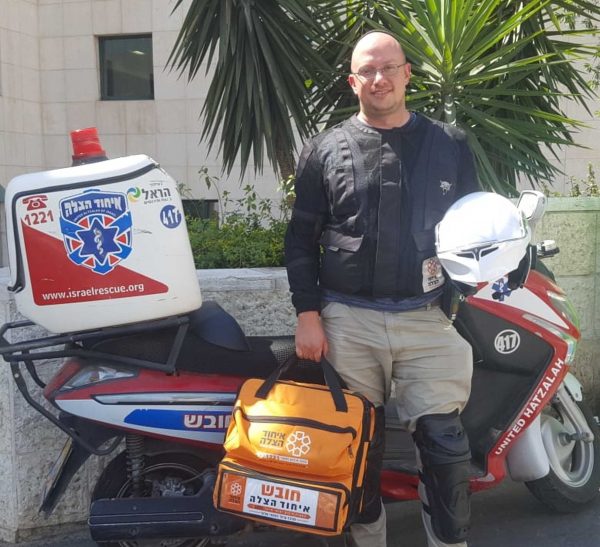
When United Hatzalah’s (Hatzalah is Hebrew for Rescue) Founder and President Eli Beer said that he would create an emergency medical service system that would enable first responders to arrive at the scene of a medical emergency with a national average response time of fewer than three minutes, people didn’t believe him. When he said that first responders were the tools that saved lives and not ambulances, people didn’t believe him. When he put EMTs, paramedics, and doctors on motorcycles and built a box in the back to carry all of the lifesaving equipment present in an ambulance aside from the bed and backboard and called it an ambucycle, people thought it was crazy. Now after 12 years, 5,000 responders, and 750 ambucycles people believe.
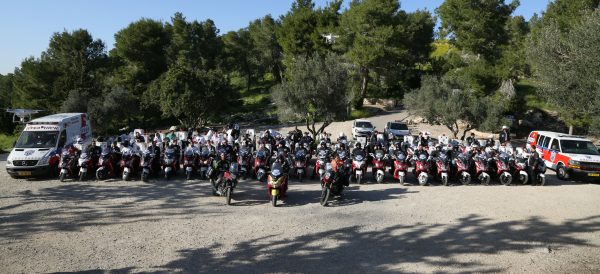
Having attained those goals, United Hatzalah of Israel is now set to enhance its current response system to enable first responders to arrive at the scene of an emergency with an average response time of 90 seconds across the country. It sounds absurd, especially when most Western countries, provinces, counties, and cities have set a goal of attaining an average response time of 8 or 9 minutes. But most of those authorities don’t use ambucycles and highly trained volunteer responders who drop whatever they’re doing and rush out at a moments notice to respond to emergencies in their local vicinity … 90 seconds seems like a dream. But, as Eli and United Hatzalah have already proven, when you are dealing with speed and ambucycles, dreams very quickly become a reality.
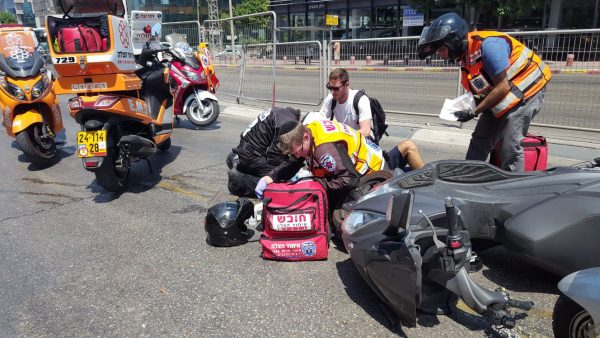
Saving critical seconds in the field of EMS and beginning the process of prehospital treatment in the case of any medical emergency faster is the mission. In Israel, United Hatzalah is doing exactly that and providing treatment before an ambulance can arrive. By utilizing its fleet of ambucycles to get emergency personnel through traffic faster, a national network of trained EMS personnel, and advanced geolocation technology similar to UBER, United Hatzalah has already succeeded at lowering the average emergency response time to 90 seconds in major cities such as Jerusalem, parts of Tel Aviv and others. Other organizations are following suit and thus the patients benefit from the resulting flashmob of responders who rush to an emergency at any time day or night. Arriving at patients faster and beginning treatment is key to raising their chances of survival, and ambucycles are the key to arriving faster.
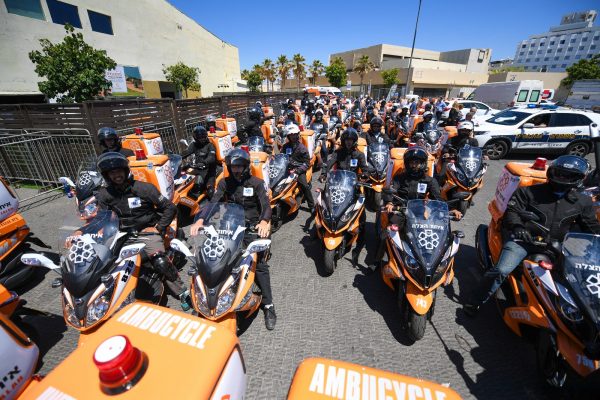
The concept of the ambucycle came to life during a terror attack in the crowded Jerusalem neighborhood known as Beit Yisroel. This neighborhood is known for its narrow and crowded streets. On March 2, 2002, a Palestinian terrorist blew himself up in a suicide bombing that killed 11 civilians including two infants. Ambulance crews and medical volunteers rushed from all over to provide assistance, but the streets were already full of hysterical pedestrians and drivers fleeing the scene and the rescue teams couldn’t get through the traffic for a lengthy period of time, preventing life-saving aid from reaching the injured and dying. Seeing the carnage and resulting traffic congestion, the idea was born to put medical responders with a full complement of equipment on motorcycles, allowing them to cut through the traffic and reach patients during the golden hour following illness or injury.
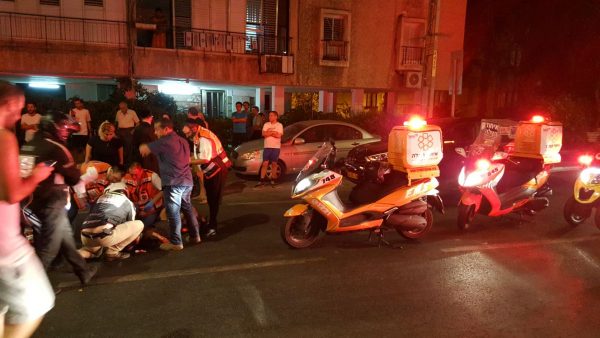
Ambucycle responders receive fully accredited medical training and equipment appropriate for their level of caregiving. They also receive specialized driver training that earns them certification to use their ambucycles at high speeds as emergency vehicles. The ambucycles all come equipped with lights and sirens, which drivers are allowed to employ, only after passing the extra level of training and an internal test.
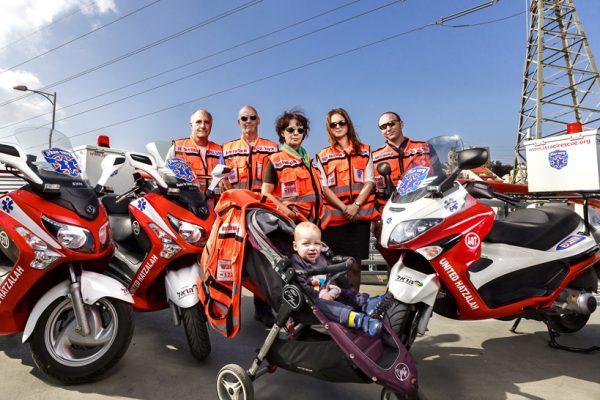
The volunteers who make up the organization are as diverse as the country, with volunteers coming from all religious and political backgrounds. “In the northern region, we have Druze, Muslim and Christian residents volunteering alongside their Jewish peers. In the South, Bedouins work hand-in-hand with other responders. The organization boasts six exclusively Muslim chapters across the country including Kfar Kassem, Taibe, Shibli, Wadi Ara, Nazareth and east Jerusalem and large swathes of other chapters are mixed bringing responders from all backgrounds to work together. That is why our name says ‘united,’ that is part of what we do,” Beer declared.
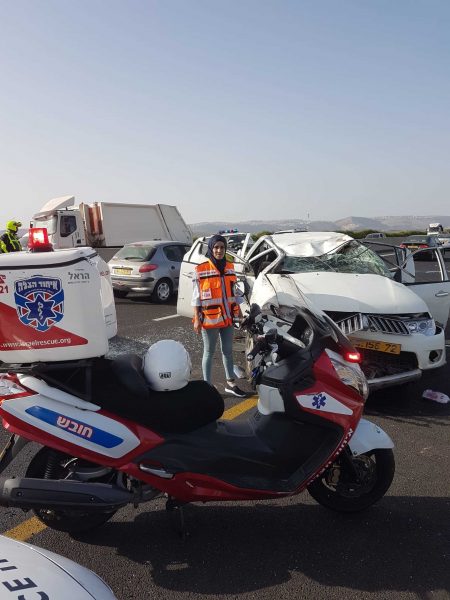
United Hatzalah has active branches in three other countries including Panama, Ukraine (Kiev and Uman) and in the United States (United Rescue of Jersey City, NJ). It has also built partnerships with other EMS organizations in Brazil, Argentina, India, Mexico, South Africa, and its model of lifesaving is being developed in more than a dozen others. Already, the concept of the ambucycle has been adopted in many of these countries as well as in Zurich, Sweden, where a similar but smaller organization known as Hatzolah Zurich, has begun to employ ambucycles due to the results that were seen in Israel.
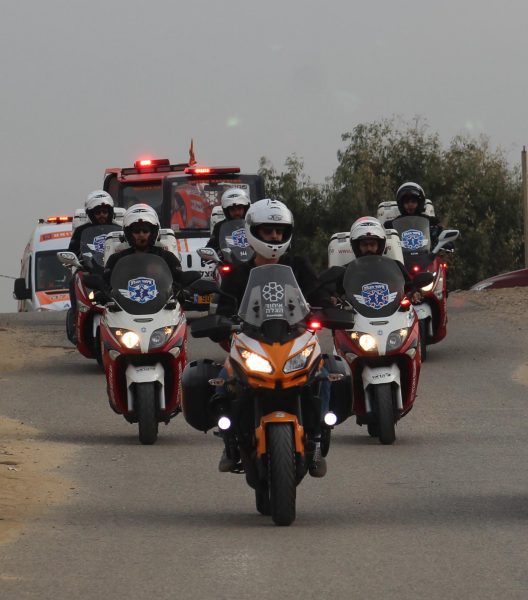
The work that these organizations do is not aimed at being the transport vehicle to take an injured or sick individual to the hospital, but in being the immediate response to save critical seconds and begin treatment before an ambulance can arrive. In the case of mass casualty incidents (MCIs) or trauma, triage can begin, and immediate medical treatment can already be taking place before the ambulances arrive, enabling the ambulance teams to simply load the patients onboard and transport them to the hospital for continued care.
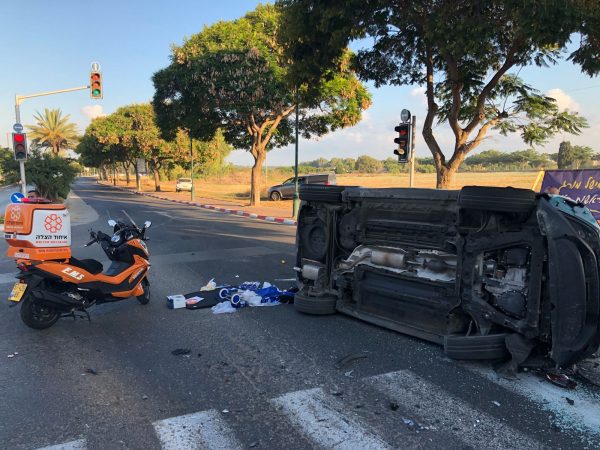
This model has stood up under real-life situations including terror attacks, natural disasters, and everyday medical emergencies such as car and bicycle accidents, illnesses and traumas. In Israel, the organization responds to an average of more than 1,000 calls daily.
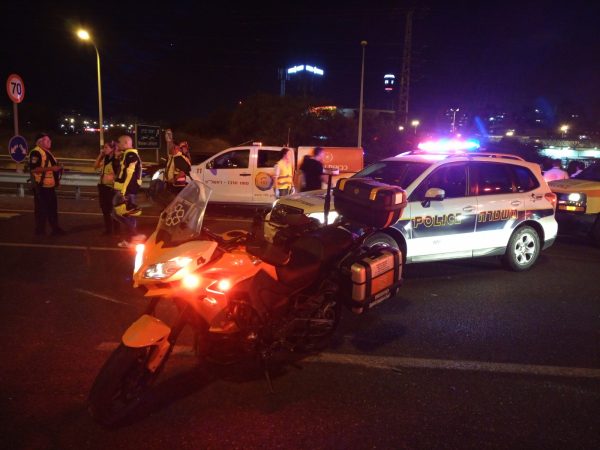
This front line of community-based EMS response is a force multiplier for emergency and disaster preparedness at the highest level and fulfills the Judeo-Christian value of “love thy neighbor.”
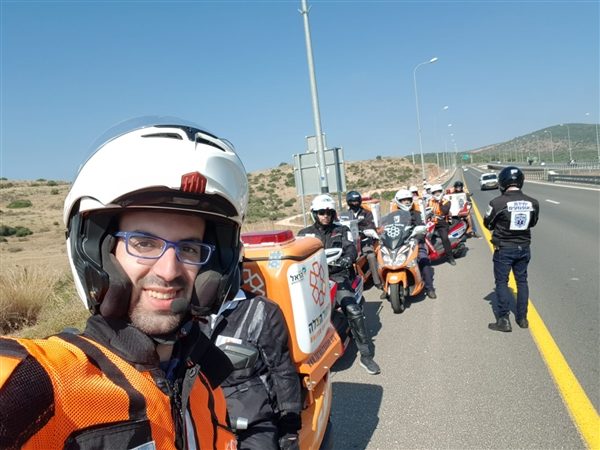
Perhaps what is most impressive about the entire organization, is that all of its services are offered completely free of charge to the patient. In the 12 years that the organization has been operational, none of more than 2,500,000 people who have been treated by its volunteers has ever received a bill. Instead, all of the money comes from donations from both inside Israel and international supporters.
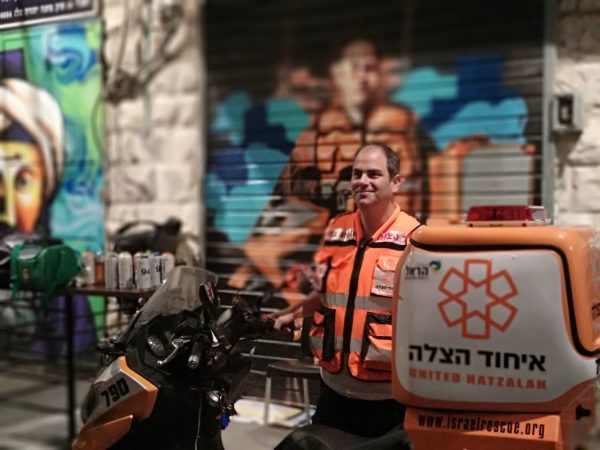
“I made the commitment when I began this organization, that no one should ever hesitate to call for emergency medical assistance because they can’t afford to pay an ambulance bill. Therefore, all of our services are free, they have always been free, and they always will be free,” Beer concluded.

